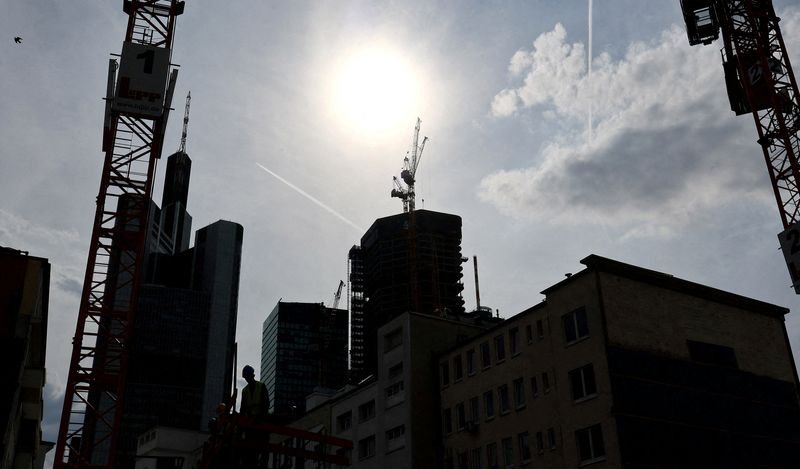BERLIN (Reuters) – German housing construction stagnated in 2023 as the number of apartments built fell slightly from the previous year as the wider property market suffers its worst crisis in a generation.
Around 294,400 apartments were built last year, 0.3% fewer than in 2022 and far below the government’s target of building 400,000 apartments annually, Federal Statistics Office data showed on Thursday.
The authorities approved only 260,000 constructions during the year – the lowest level since 2012, and the number of permits continued to fall in the first quarter of 2024, data last week had shown.
Construction Minister Klara Geywitz described the numbers as stable, adding that more private companies were participating in affordable housing projects which she called an “anchor of stability” for the housing sector.
Berlin earmarked 18 billion euros ($19.51 billion) for affordable housing amid a cost of living crisis, in order to provide homes for recently arrived immigrants to Europe’s biggest economy.
A sudden jump in interest rates and building costs, coupled with an abrupt end to cheap energy from Russia and red tape have hit German property demand, with investors choosing other destinations such as Britain or France.
Commercial property prices in Germany tumbled by 9.6% in the first three months of 2024 compared with a year earlier after a 10.2% drop for 2023 – according to the VDP banking association.
The housing construction backlog – apartments that have been approved but not yet built – has fallen for the first time since the 2008 financial crisis, according to the statistics office data.
($1 = 0.9225 euros)
(Reporting by Klaus Lauer, writing by Andrey Sychev, Editing by Ros Russell)

